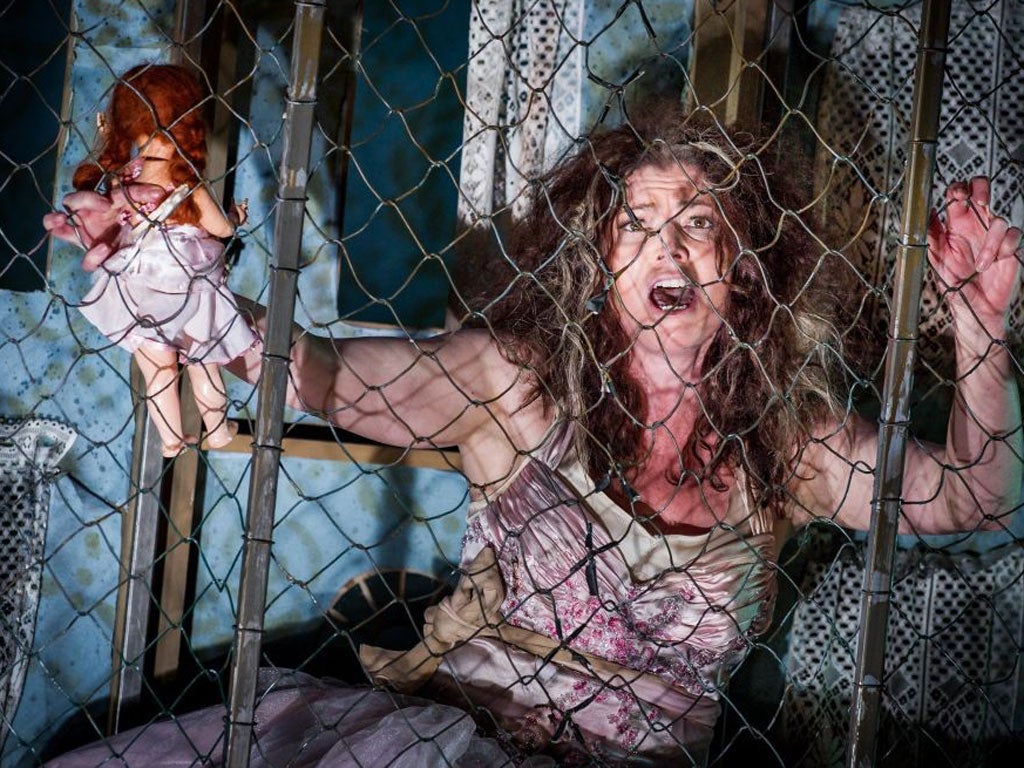The Maiden in the Tower/Kaschei the Immortal/Too Hot to Handel, Buxton Festival Opera, Derbyshire The 1915 Concert, Cheltenham Festival of Music, Gloucestershire
Buxton unearths some operatic rarities, while a programme of wartime music sounds otherworldly

Your support helps us to tell the story
From reproductive rights to climate change to Big Tech, The Independent is on the ground when the story is developing. Whether it's investigating the financials of Elon Musk's pro-Trump PAC or producing our latest documentary, 'The A Word', which shines a light on the American women fighting for reproductive rights, we know how important it is to parse out the facts from the messaging.
At such a critical moment in US history, we need reporters on the ground. Your donation allows us to keep sending journalists to speak to both sides of the story.
The Independent is trusted by Americans across the entire political spectrum. And unlike many other quality news outlets, we choose not to lock Americans out of our reporting and analysis with paywalls. We believe quality journalism should be available to everyone, paid for by those who can afford it.
Your support makes all the difference.Fairytales and political allegory collide in Stephen Lawless's claustrophobic double bill of Sibelius's The Maiden in the Tower and Rimsky-Korsakov's Kashchei the Immortal for Buxton Opera Festival. Designed by Russell Craig, the setting for both works is a nightmarish nursery, populated by heavy-limbed, Paula Rego-esque children in Sibelius's cool, pine-scented fantasy, and thick with the broken promises of adulthood in Rimsky's glittering parable of bad parenting (that of the Tsar to Russia). Presented with two works on the theme of captivity and rescue, Lawless emphasises the parallels between them, using Sibelius's slender 30-minute drama as a prequel to the darker Russian opera.
Wild-eyed and wild-haired, soprano Kate Ladner (Maiden/Princess) is the victim in both: lured into a castellated doll's house by Owen Gilhooly's sexually precocious Bailiff's Son and rescued by Richard Berkeley-Steele's sailor-suited hero in the Sibelius, then trapped by Berkeley-Steele's seedy sorceror and eventually freed by Gilhooly in the Rimsky. To an already pungent whiff of suppressed sexuality in the texts – one was written in 1896, the other in 1902 – Lawless adds a top-note of Stockholm Syndrome, as the heroine clings perversely to her captor, though the real victim of Kashchei is Emma Selway's dessicated Kascheyevna.
The resinous soundworld of the Sibelius resists containment, and Rimsky's narcotic jewel-box score sits more comfortably in Lawless's airless interior. Strong performances from the cast, most particularly Ladner in the "Maiden's Prayer" and the Princess's hate-dulled Lullaby, and a vibrant reading of both scores from the Northern Chamber Orchestra under Stuart Stratford cannot disguise the fact that while Rimsky was a theatre animal, Sibelius was a tone poet. But where else in Britain would you find a double-bill like this?
Too Hot to Handel, the Armonico Consort's romcom pastiche, had Buxton's audience eating out of its hand from the first note of counter-tenor William Towers's first recitative. With a tiny on-stage band, and music drawn from the operas Xerxes, Orlando, Giulio Cesare, Poro and Agrippina, this breezy, demotic two-hander sees Towers and soprano Yvette Bonner meet, fall in love, move in together, split up acrimoniously, comfort eat and reunite, with a little help from a lost dog, a bunch of balloons and a flurry of snowflakes. Beautifully sung by both leads, with lively support from a professional quartet and (in this performance) the Buxton Madrigal Singers, Emma Rivlin's deft, ditsy touring production has bags of charm and some smart slapstick.
Cheltenham Festival's Time Capsule series of music from 1914-18 was a model of how to weave a strong narrative across several events. An audio-montage at the opening of Wednesday's 1915 Concert plunged the listeners into the year of the sinking of the Lusitania, the first Zeppelin raids on Britain, and the escalation of the First World War. The tone of the news report that followed was unsteady, and it was odd not to include some of the music written for King Albert's Book in aid of the Belgian refugees. To those who had attended the festival's talks on shell shock and military technology, the contrast between the Belgian carnage and the sensuality of that year's chamber music must have been dizzying.
In the absence of direct responses to the war from the composers of 1915 – Elgar's "Chantons, Belges, Chantons!", Messager's "Pour la patrie" or Debussy's "Berceuse héroique", all from King Albert's Book – what we heard was melancholy and atavism: the Rhône-maiden flutterings of Debussy's Sonata for flute, viola and harp, the self-adoring shimmer of Szymanowski's Mythes Op 30, the bittersweet grin of Bartók's Pe loc and the humid chromatic idling of Reger's Clarinet Quintet. The closest any of the featured works came to expressing a sense of anger was in the danse sauvage of Debussy's Sonata for cello and piano, played with ferocious, predatory beauty by Steven Isserlis and Connie Shih. The collective musicianship was startling, the concept strong. But far from placing chamber music in the context of war, The 1915 Concert underlined just how removed from real life music can be.
Buxton Opera Festival (0845 127 2190) to 24 Jul; Cheltenham Music Festival (0844 880 8094) ends today; 'Too Hot to Handel', Pleasance, London N1 (020-7609 1800) today, and touring
Critic's Choice
Tonight’s performance of Pelléas et Mélisande with Sir John Eliot Gardiner and the Orchestre Révolutionnaire et Romantique at the Royal Albert Hall, London, is one of several French fancies at the BB C Proms this week. Tomorrow, Alice Coote and Julius Drake give a lunchtime recital of songs by Gounod, Fauré and Poulenc at Cadogan Hall, before Imogen Cooper plays Ravel’s Piano Concerto in G. All are broadcast live on Radio 3.
Join our commenting forum
Join thought-provoking conversations, follow other Independent readers and see their replies
Comments